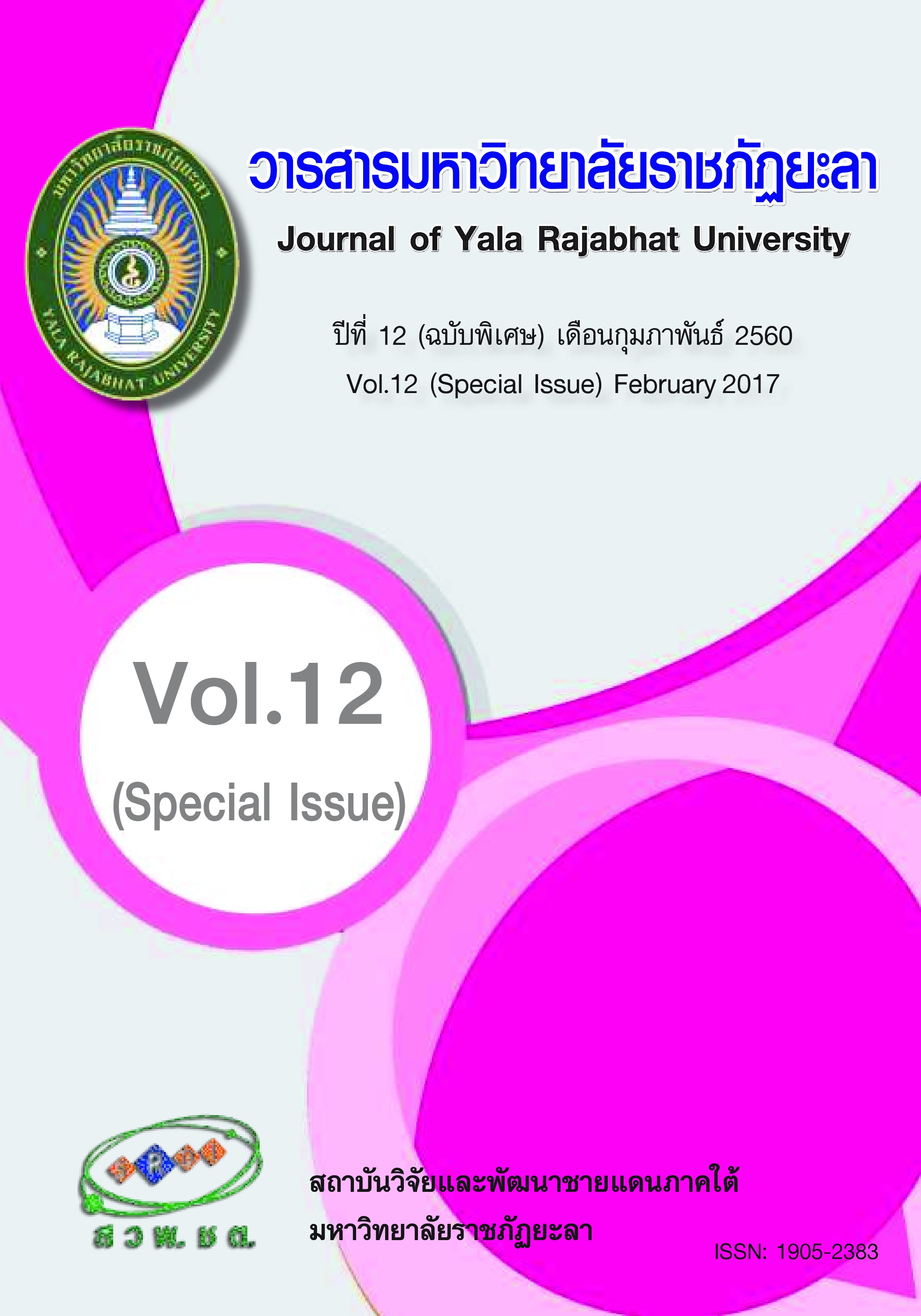กรอบแนวคิดการพัฒนาทรัพยากรมนุษย์ขององค์การในศตวรรษที่ 21
Main Article Content
บทคัดย่อ
กรอบแนวคิดการพัฒนาทรัพยากรมนุษย์ขององค์การในศตวรรษท 21 มุ่งศึกษาแนวคิดทฤษฎีและความหมายของการพัฒนาทรัพยากรมนุษย์ ศึกษากระบวนการการออกแบบการพัฒนา และแนวคิดพื้นฐานที่สอดคล้องกับบริบทของการพัฒนาทรัพยากรมนุษย์ขององค์การในศตวรรษที่ 21 โดยให้ความสำคัญกับกระบวนการพัฒนาเริ่มตั้งแต่การประเมินเพื่อหาความต้องการพัฒนา การนำข้อมูลความต้องการไปออกแบบเป็นแผนปฏิบัติการ การดำเนินโครงการที่สอดคล้องกับความต้องการของผู้รับการพัฒนาและองค์การ และการประเมินผลโครงการพัฒนาทรัพยากรมนุษย์ โดยยึดหลักสำคัญคือ การบริหารทรัพยากรมนุษย์ที่ต้องคำนึงถึงพลวัต การเปลี่ยนแปลง การบริหารความหลากหลาย การจัดการความรู้หลักการเรียนรู้ของผู้ใหญ่อาศัยพันธมิตรหรือหุ้นส่วนในการเรียนรู้ และการเรียนรู้จากการปฏิบัติงานจริง บนพื้นฐานของแนวคิดความต้องการที่ไม่สิ้นสุดของมนุษย์ได้ ดังนั้นกรอบแนวคิดการพัฒนาทรัพยากรมนุษย์ขององค์การในศตวรรษที่ 21 จึงเป็นรากฐานสำคัญ ที่จะนำไปสู่การกำหนดแนวทางการพัฒนาทรัพยากรมนุษย์ที่ถูกต้องครอบคลุมตามวัตถุประสงค์ขององค์การในยุคการแข่งขัน โดยมีเป้าหมายเพื่อให้พนักงานเกิดประสบการณ์การเรียนรู้มีความรู้ ทักษะและความสามารถไปในทิศทางตามการเปลี่ยนแปลงขององค์การในยุคการแข่งขันได้
Article Details
บทความ ข้อมูล เนื้อหา รูปภาพ ฯลฯ ที่ได้รับการเผยแพร่ในวารสารมหาวิทยาลัยราชภัฏยะลานี้ ถือเป็นลิขสิทธิ์ของวารสารมหาวิทยาลัยราชภัฏยะลา หากบุคคลหรือหน่วยงานใดต้องการนำทั้งหมดหรือส่วนหนึ่งส่วนใดไปเผยแพร่ต่อหรือกระทำการใดๆ จะต้องได้รับอนุญาตเป็นลายลักษณ์อักษรจากวารสารมหาวิทยาลัยราชภัฏยะลาก่อนเท่านั้น
เอกสารอ้างอิง
2.Delahaye, B. L. (2005). Human Resource Development: Adult Learning and Knowledge Management. (2nded.). Qld: John Wiley & Sons Austrlia, Ltd.
3.Economic team. (2016). Crack the code “in 4.0” new economy. Crossing middle-income trap [Online]. September 12, 2016, from: http://www.thairath.co.th/content/613903. (in Thai)
4.Edward, L. Thorndike. (1928). Adult Learning. New York: Macmillan.
5.Jankingthong, K. (2016). The Influential of Behaviors from Individual, Group, and Organization Levels toward the Polices’ Performance in Southern Border Provinces of Thailand. Journal of Yala Rajabhat University, 11(1), 143-153. (in Thai)
6.Maslow, A. H. (1943). A Theory of Human Motivation. Originally Published in Psychological Review. York University, Toronto, Ontario.
7.Mathis, R. L. & Jackson, J. H. (2008). Human Resource management. (12th ed.). South-Western: Thomson.
8.Rothwell, W. J. (2005). Beyond Training and Development. (2nd ed.). New York: Amacom.
9.Senge, P. M. (2006). The art and practice of the learning organization. (The fifth discipline). London: Century.
10.Swanson, R. A. & Holton III, E. F. (2009). Foundations of Human Resource Development. San Francisco: Berrett-Koehler.
11.Srihaphong, C. (2007). Strategies for Enhancing Working Motivation. Journal of Yala Rajabhat University, 2(2), 139-149. (in Thai)
12.Sereerat, S., Hirunkitti, S. & Thungsinsubsiri, T. (2007). Management and Organizational behavior. Bangkok: Tierra film and Zytech. (in Thai)
13.Sonwa, S. (2014). The reflection of human resource development and community. (Edition 2.). Mahasarakham: Rajabhat Mahasarakham University print. (in Thai)
14.Todaro, M. P. & Smith, S. C. (2006). Economic Development. (9th ed.). New York: Pearson- Addison Wesley.
15.Werner, J. M. & Desimone, R. L. (2006). Human Resource Development. (4th ed.). Mason, Ohio: Thomson South-Western.
16.Wongthongdee, S. (2013). The development of human resources. Bangkok: Chulalongkorn University. (in Thai)


